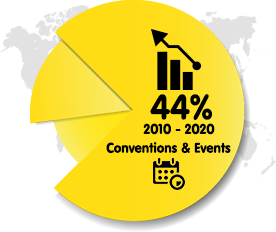Are you looking forward to taking your freelance writing business to the next level by landing big time corporate clients? One of the most disturbing truths that block such aspiration is that prospects do not realize they need people who do not just write…but those who write effectively. Like you.
Like you.
Naturally, your initial plan would be to send each one of these prospects a customized, dramatic proposal, which should be based on research to match their needs, and follow up on them every now and then. You are lucky if the secretary would be extra nice to squeeze you into his boss’ schedule for the week.
Corporate clients are busy clients. They may not have time to thoroughly read your proposal. They may not have time to check your online portfolio or have a meeting with you.  They will not have time for you if they do not understand the need yet or their impression is not a need but a luxury. Not a sight of ROI, not a priority, not a clog they have to clear.But they have time for their own conventions, where networking, partnerships, and opportunities happen. All kinds of industries and businesses are always looking for interactions. In fact, the U.S. Bureau of Labor Statistics reported that there will be a 44% increase in the number of conventions and events from 2010 to 2020.
They will not have time for you if they do not understand the need yet or their impression is not a need but a luxury. Not a sight of ROI, not a priority, not a clog they have to clear.But they have time for their own conventions, where networking, partnerships, and opportunities happen. All kinds of industries and businesses are always looking for interactions. In fact, the U.S. Bureau of Labor Statistics reported that there will be a 44% increase in the number of conventions and events from 2010 to 2020.
But they have time for their own conventions, where networking, partnerships, and opportunities happen. All kinds of industries and businesses are always looking for interactions. In fact, the U.S. Bureau of Labor Statistics reported that there will be a 44% increase in the number of conventions and events from 2010 to 2020.
This is where you enter.

Get a slot in a convention and talk about business communication.
Scared of speaking in front of people? When you realize the benefits, you should have the willingness to train yourself, to study, to practice. Why? The opportunity can give you both one-time yet huge projects and long-term clients, and therefore, a sustainable, thriving freelance writing business.
Speaking at a convention as a business writer is like “hitting many birds with one stone.” When I say many, here are the benefits aside from getting an exposure through your talk:
- Be friends with the organizer, and get more speaking gigs.
- Be friends with other attendees, and establish connections.
- Be friends with other speakers, and establish wilder connections.
- Be friends with the owner or manager of the venue who must have met so many executives and business owners, and establish the wildest connections.
Simply make friends. It doesn’t have to be about business all the time. Sometimes, the best opportunities spring from meaningful relationships.
THE PREPARATION
- Have your business cards ready and accessible.
- Produce your own brochure. Make it formal yet creative and handy. The participants will receive so many business cards during the event for sure. You need to bring something that will make you unforgettable.
- Send the organizer a thank-you note. Be grateful for the opportunity and that you would love to help them again in their future events.
THE PROPOSAL
The trickiest step in making this opportunity happen is how to get the nod of the gatekeeper, who is also known as the event organizer. Here is what you can do: Create a letter and a proposal for the organizer. If possible, ask for an appointment and promise it will be quick.
a. Make sure the proposal shows how you can add value to the event. How can the participants relate to a business communication talk? What are the problems and needs of the participants you can help solve? How will you justify that?
b. The next part of the letter should answer: Why you? Back it up with your resume, portfolio, website, or as much as possible, testimonials from your previous clients who are similar to the target participants of the event.
c. Treat the gatekeepers not as organizers but as decision-makers. Keep your assertiveness at a comfortable level. Be polite: “I have attached my resume and portfolio so you can evaluate if my proposed talk is going to add value to your event.”
d. Attach the outline of your talk—make it specific and customized to the industry of the participants. If you have props, like a conference kit, mention it so you can show them that you are a professional and that your presence can boost the reputation of the organizer.
THE PIECE
If you are given 30 minutes, do your best. If you are given 10-15 minutes, do your most unforgettable best. Here’s a structure you can follow:
1. Make an introduction…not about yourself but about you being with them, the organizers and the participants. How do they make you feel? Why are you flattered to be in front of them? What will you discuss? Why does it matter? Why do they need help?
2. Slowly transition to the problem you can solve for them. What are companies currently experiencing in their marketing, public relations, or internal communications according to your observations and research? Discuss the pain and its macro, mini, long-term, and even short-term effects. Let them know this is real by providing them statistics, studies, and even related quotations from the best in their industry or the unforgettable lines from the previous speakers that you can link to the importance of business communication.
3. Present the solution using your own experiences and accomplishments. What services have you provided to your previous clients? What were the results? Why did your previous clients outsource you? This is where you establish your credibility.
4. Tell a winning story. Everybody in the audience is in the event to gain something, to win something. Everybody loves a story that will move them and haunt them. This is where you make your connection. Remember what the late Maya Angelou once said? “People will forget what you did, but people will never forget how you made them feel.”
5. Create a call-to-action. Ask them to take a look at what they can still improve in areas that require business communication solutions. Ask them to establish expectations once these areas have been improved. Ask them to make a vision for their business and for their people.
6. Make them ask for more. Since you are given a very short time for your talk, be polite and tell them you cannot answer questions at the moment. But ask them to visit your site and remind them that you will just be around so you can say hi to each other and maybe have a coffee after the convention.
After that, it is time to convert conversations into clients.
Isn’t that exciting?
But before you start and make that speaking proposal, keep in mind what Steve Martin once said, something you can apply in everything you do: Be so good they can’t ignore you.



